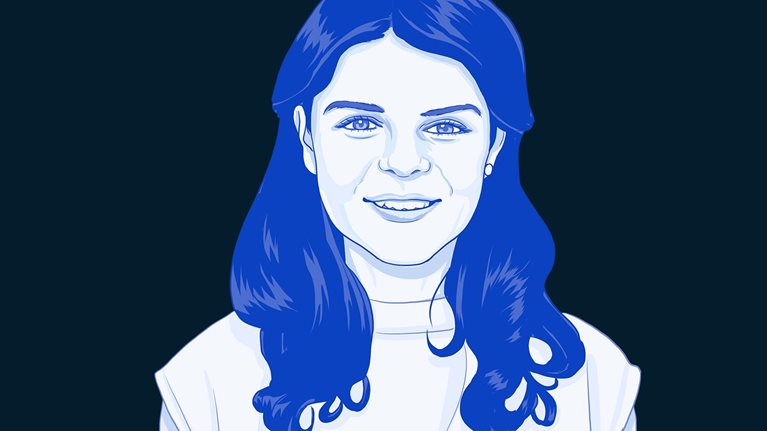Corporate start-ups may enjoy significant advantages, but they’re useless without entrepreneurial leaders who know how to exploit them effectively. Taking advantage of existing customers and key relationships, as well as access to funding, allows these new businesses to move fast. Tarek Müller, cofounder and managing director of About You, shares his insights with McKinsey’s Jerome Königsfeld about scaling About You from a local e-commerce start-up into Hamburg’s first unicorn.
Jerome Königsfeld: How has the COVID-19 crisis affected About You, and how have you managed its biggest challenges?
Tarek Müller: The key change was our daily operating model, since we had just two days to start working from our home offices. I believe this will have permanent effects going forward, since it will be hard to go back to working 100 percent in the office. Companies will have to provide flexible working options.
Our biggest challenge occurred during the first few weeks of the pandemic, when consumer demand dropped massively, especially for fashion and also online. There was also a shift in categories, as the demand for sportswear and “homewear” increased at the expense of things such as evening wear. Our algorithms are fully automated and helped us react quickly. So when consumer demand shifted, online recommendations changed automatically. Visitors started to see homewear and sportswear as top recommendations on the website. Restocking also adapted automatically based on changing forecasts.
When demand slowed, marketing spend also decreased drastically. But once the algorithms realized the potential for cheap traffic, such as price-per-click rates declining as advertisers pulled out marketing spend, we ramped up the marketing and started generating massive traffic while gaining market share. We also started to leverage social marketing and influencers, since social-media usage skyrocketed when the pandemic hit. We tried to be flexible, too. So when face masks became mandatory, we shifted our production fast to produce millions of them, becoming Europe’s largest cotton-face-mask retailer.
A second challenge was to continue operations that required people on the ground, such as logistics and photo studios. So we immediately implemented hygiene rules to protect those who couldn’t work from home in order to keep those functions going.
The final challenge is the unclear future path, which is crucial for financing and cash flow. A financing timeline is especially critical for a start-up in the growth phase, so we switched from growth steering to cash-flow steering.
Jerome Königsfeld: About You was founded as a daughter company of the Otto Group. What advantages did this give you?
Tarek Müller: First off, we had guaranteed funding for five years, as our capital commitments were tailored to certain milestones. That was a huge advantage for us, because other founders typically need to spend a lot of time fundraising, while we were able to fully focus on our business.
Our existing relationships in purchasing helped a lot as well. Fashion brands typically don’t sell to new e-commerce players before there is proven performance. So in the very beginning, before we reached out to any new suppliers, we were able to leverage some stock from the Otto Group to hit the ground running.
This also helped our credibility with logistics and warehousing providers, because we needed capital investment from partners to ramp up initial infrastructure. This is a classic chicken-and-egg problem, because new start-ups need logistics investment to grow, while logistics providers want to see them grow first to know they can be trusted with their investment.
Last but not least, we also benefited from best-practice sharing with the Otto Group.
Jerome Königsfeld: What would you tell your younger self today about the early challenges and surprises in setting up About You as a part of a corporate?
Tarek Müller: Invest earlier in governance, rules, and planning with your future shareholders. This will take some time and effort, but it’s best to frontload these decisions to make your lives easier going forward. I did this and would definitely do it again.
Also, it’s important to look at the relationship not in terms of what needs to be independent from the parent company but, rather, what are the relevant areas for the corporate to be involved in. Everything else should be free and independent. It’s hard for some European companies to understand this, but start-ups need to be as independent as possible.
Would you like to learn about Leap, our business-building practice?
Jerome Königsfeld: What are the typical character traits of corporate entrepreneurs?
Tarek Müller: To be able to pivot in times of uncertainty, you need to have real entrepreneurs. But hiring them can be really expensive. You can’t convince them with just a salary plus bonus, because they need to have real skin in the game and will accept the risk for the upside potential.
Corporates usually select the most entrepreneurial person among their employed managers. But that’s not very realistic, since managers by definition are not entrepreneurs. In the United States, they do this very well with a model called “acqui-hire,” where corporates acquire an existing start-up with the goal of securing talent for new corporate start-ups or projects they want to ramp up. Acqui-hire helps them get proven teams and real entrepreneurs on board.
Jerome Königsfeld: About You was originally a small start-up in Hamburg. It is now one of the fastest-growing e-commerce platforms in Europe. How did you know when the time was right to scale the business?
Tarek Müller: It was a financial decision. Both returns and the risk profile seemed right, and since returns were high, we decided to scale up. We are in 14 countries now and are still expanding heavily. Our objective is a continental European footprint, and we’d like to expand outside of Europe as well.
At the end of 2017, two and a half years after founding About You, we decided to expand into non-German-speaking areas. Again, this was due to financial reasons, and it seemed like the right time to move. About You was doing really well in Germany, Austria, and Switzerland, and we wanted to see how it would perform in non-German-speaking markets. So we quickly set up a minimum viable product (MVP) and commenced operations in Belgium and the Netherlands.
Jerome Königsfeld: What were the key success factors in scaling About You?
Tarek Müller: In e-commerce, there is no single “killer feature” that creates extraordinary leapfrog growth. As we say, “retail is detail.” What does matter is the DNA a company needs to execute on many things at the same time. The most successful e-commerce companies see themselves as tech companies or platforms as well as retailers. Their mindset is, “I have access to my end consumer, and I am going to monetize that in multiple ways.” A healthy paranoia about missing out on the next big thing is really critical, too.
Jerome Königsfeld: What are the three main key performance indicators (KPIs) you look at each day? Have they changed over time?
Tarek Müller: Our daily KPIs are revenue, profit margin, customer-acquisition cost, and customer lifetime value. Customer lifetime value needs to exceed the cost of customer acquisition, similar to buying real estate in order to profit by renting it out.
What’s also really critical is doing a cohort analysis. You can’t look only at top numbers. You should examine existing and new customers separately. Companies usually don’t check this detail, and their existing customers end up subsidizing new ones.
Our daily KPIs didn’t change as we scaled up, but the thresholds we set for ourselves became more aggressive. For tech companies, it might be hard to meet targets due to the difficulty in forecasting, but in the B2C e-commerce business, fairly accurate forecasting is possible with a cohort analysis.
For example, after just 30 days, you can forecast very well how e-commerce customers will behave over a couple of years. We also track a cohort’s behavior as well as patterns in their behavior. For example, we know certain behaviors lead to churn, such as not getting a second order within the first three months, not signing up for a newsletter, not downloading the mobile app, and so on.
Jerome Königsfeld: What are your goals for About You moving forward?
Tarek Müller: Our goal is to capture 20 percent of all lifestyle and fashion transactions in Europe. We have three growth horizons in mind. The first is geographic expansion, and we recently launched in four new countries. Next is growing the enabling segment, our platform technology business, where we provide other retailers and brands with our infrastructure such as technology, marketing services, and fulfillment. Finally, we want an increasing share of wallet within our existing customer base by expanding into new categories such as beauty and others.

